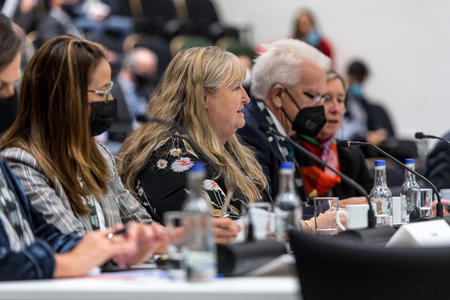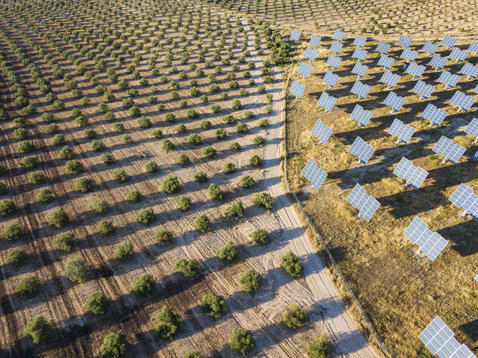Under2 Coalition governments are taking control in generating clean and green energy.
We’ve shone a spotlight on Wales and Catalonia – two European members who have launched their own public energy companies.
With this, they’ve committed to keep energy costs down. To accelerate a shift towards renewables. And to shape a secure and sustainable energy future for their regions.
The case for publicly owned energy.
Energy is the largest polluting sector globally. It’s responsible for two-thirds of GHG emissions. If we’re to reach net zero by 2050, we need to shift to renewables, fast.
Nine out of the top ten countries leading the energy transition to renewables have something in common: a publicly owned renewable energy company driving the process (Common Wealth, 2022).
Vattenfall, a member of our EV100 initiative, is one of Europe’s largest producers and retailers of electricity and heat. It’s also 100% owned by the Swedish state.
Denmark has the highest proportion of wind power in the world. Its transmission grid – as you might have guessed - is also fully publicly owned (We Own It, 2019).
So, what’s the hype?
Publicly owned energy-generating companies offer notable benefits:
- They stimulate domestic investment. Profit isn’t extracted for private gain, so governments can reinvest profits for the benefit of their local communities.
- More money is available to pay for a green transition. Not only can profits be used to invest in renewables, there’s also less reliance on changing market conditions. Planning and investing in a climate transition can take place rapidly and at scale.
- There's a clear purpose. It’s not about profit, it’s about clean, affordable and sustainable energy for the public.
We’re seeing uptake from states and regions in this area.

Public Renewable Energies of Catalonia, SAU - L’Energètica - was legally constituted in December 2022. It aims to guarantee a 100% renewable energy supply for all Catalonia’s government and public sector facilities – equal to 2% of the region’s total annual energy consumption (1TWh / year).
The region will purchase energy in large volumes, with the aim to reduce the administration’s electricity bill, promote the use of renewables and drive investment in green projects.
By accelerating renewables, Catalonia will improve energy security and strategically increase the share of domestic energy production. Any surplus energy can be used for self-consumption.
Catalonia aims to reduce GHG emissions by 55% by 2030 and become carbon neutral by 2050. With this public energy company, the region hopes to transform its energy model for the benefit of its people and the environment.
Catalonia is transitioning to a democratic, decentralised and participatory energy model and L’Energètica, our public energy company, is key to change the country's energy paradigm and guarantee energy sovereignty.
Catalonia is transitioning to a democratic, decentralised and participatory energy model and L’Energètica, our public energy company, is key to change the country's energy paradigm and guarantee energy sovereignty.

Minister for Climate Change, Julie James announced the creation of a state-owned energy developer. It will tackle energy insecurity and the dual threats posed by the climate and nature emergencies.
The developer will scale up the rollout of renewable energy, with a particular focus on onshore wind projects, aiming to increase the level of funding retained in Wales.
We will set up a publicly owned renewable energy developer. This is a long-term sustainable investment that puts net zero and the communities of Wales at the heart of the transition we need.
We will set up a publicly owned renewable energy developer. This is a long-term sustainable investment that puts net zero and the communities of Wales at the heart of the transition we need.
A global energy transition starts locally.
A modelling exercise for a 1.5°C global warming scenario of the Global Energy and Climate Outlook (GECO) 2022, suggests that by 2050, renewables will be the primary source of energy supply.
In practice this means our global energy market needs to drastically change. Fossil fuels will be phased out, renewables will be rolled out and the bulk of energy demand will be electrified.
Energy production and supply is likely to switch from a global to a locally led market.
Through accelerating renewables, regional policymakers can improve energy security, reduce emissions and strategically increase the share of domestic energy production, leading to a global increase in energy self-sufficiency.
